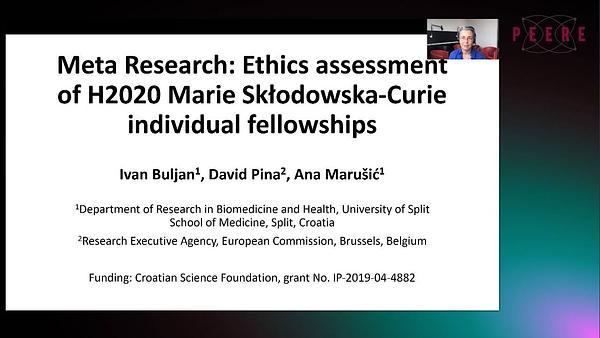Would you like to see your presentation here, made available to a global audience of researchers?
Add your own presentation or have us affordably record your next conference.
keywords:
ethics and ethical concerns
misconduct
editorial and peer review process
Objective To study the manuscripts submitted to the Journal of Clinical and Diagnostic Research (JCDR) that were withdrawn or remained unattended by the authors after receiving the external peer reviewer’s decision, and to further evaluate the authors’ characteristics and reasons for withdrawal stated in the correspondence.
Design JCDR is a broad-specialty, English-language, peer-reviewed, monthly journal with no article processing charges. This cross-sectional study was conducted on manuscripts that were withdrawn or not followed up (ie, abandoned) by authors between January 1, 2018, and December 31, 2021, after posting the external peer review report requesting revision. The manuscripts reported clinical trials, observational studies, analytical studies, case reports, literature reviews, systemic reviews, and meta-analyses. The following data were recorded: dates of submission and the email asking for a withdrawal, designation of the corresponding author, whether a department head or professor was among the authors, and the reason specified in the emails. As a policy at JCDR, all the manuscripts that are under process are considered withdrawn if there is no reply from the author for more than 4 months since the last correspondence.
Results There were 1080 manuscripts that were withdrawn (n = 150) or abandoned (n = 930) during the 4-year study period. Among these 1080 manuscripts, only 150 (13.8%) that had an email from the corresponding author requesting a withdrawal were further analyzed in the study. Of these 150 manuscripts, one-third (51 manuscripts 34.0%) had a professor as the corresponding author, whereas 44 (29.3%) had a department head or professor among the coauthors. Thirteen manuscripts (8.6%) were withdrawn within a month of the submission despite a quick response from the journal, whereas 79 (52.6%) were withdrawn after more than 3 months with 1 or more revisions. Sixty-five emails (43.3%) did not mention any specific reason for withdrawal, 35 (23.3%) stated that the authors were not willing to or unable to revise the manuscripts as per the reviewers’ feedback, and 17 emails (11.3%) stated financial constraints as the reason for withdrawal.
Conclusions It is a waste of journal resources and peer reviewers’ labor when manuscripts are abandoned or withdrawn. As a mark of good conduct, authors are expected to have forthright communication with journals. If strong reasons exist, authors may withdraw their manuscripts, but clear communication is welcome. Notably, experienced academicians (professors) also share the burden of such misconduct. The effect of such withdrawals is harder for journals that do not charge up-front processing fees. Along with rising inflation, such withdrawals add to the economic burden on a stand-alone journal.
Conflict of Interest Disclosures None reported


